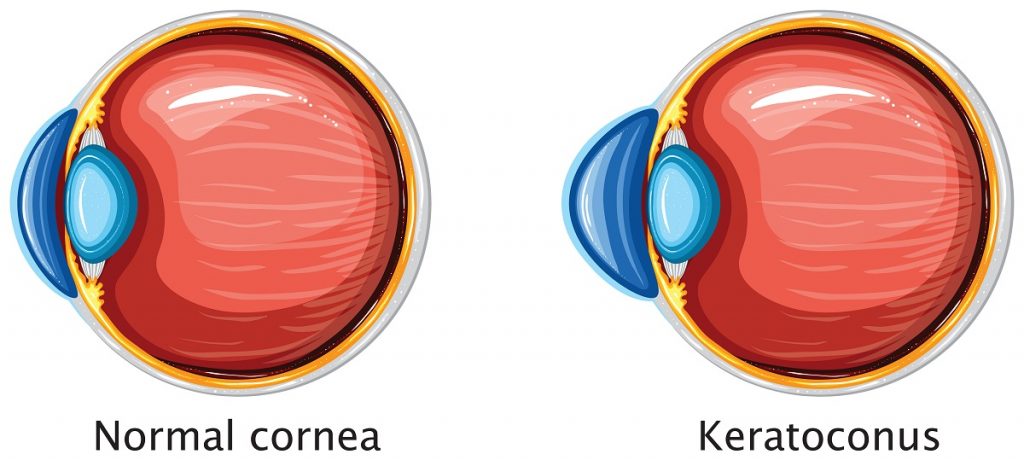
At the beginning of the year, Laser Eye Center introduced our blog readers to keratoconus, a degenerative disease that causes distortion of the eye’s cornea. In this post, we mentioned an innovative treatment called Avedro corneal crosslinking, which is on its way to becoming the Holy Grail of keratoconus treatments.
After reading our previous blog post and perhaps doing your own research, you likely learned that corneal crosslinking stiffens and strengthens a degenerating cornea by reinforcing the strands of collagen that hold it together. In case the benefits of corneal crosslinking are still unclear, we want to set the record straight on the promise it holds for our keratoconus patients.
Stops or Defers the Progression of Keratoconus
FDA clinical studies showed crosslinking had a 96 percent success rate in slowing or stopping keratoconus progression after only one treatment by fortifying the cornea against the progression of the disease. With stronger and stiffer collagen strands, the cornea is less likely to deteriorate. Stopping or slowing down the distortion and protrusion of the cornea reduces the severity of visual impairment.
Approved for Teenagers
Keratoconus is often diagnosed when patients are in their teenage years or 20s. Because the FDA has approved Avedro corneal crosslinking for those as young as 14, our doctors can intervene early and hopefully stop the condition in its tracks. Prompt intervention usually means better outcomes.
Makes Contact Lens Wear More Comfortable
Individuals diagnosed with keratoconus often must wear contact lenses because of impaired vision. The problem is that as the cornea protrudes and takes on a cone-like shape due to keratoconus, contact lenses can become uncomfortable to wear for extended periods of time.
Undergoing corneal crosslinking slows or stops the distortion and protrusion of the cornea, making contact lenses more tolerable.
Can Prevent the Need for Invasive Treatment
Corneal crosslinking has been shown to stabilize a deteriorating cornea and spare patients from possible future invasive treatments. Some doctors report seeing far fewer corneal transplants since the introduction and FDA approval of corneal crosslinking. By reducing the need for corneal transplant, corneal crosslinking can help patients avoid some of the risks of transplant surgery.
Information and Support for Those Diagnosed with Keratoconus
If you have been diagnosed with keratoconus, the team at Laser Eye Center would like to tell you more about Avedro’s groundbreaking corneal crosslinking treatment. We can explain what to expect from treatment and answer all of your questions about the treatment process.
To request an appointment with our experienced team of first-class surgeons, please call or email us today.
Schedule your free consult today
Click here to learn moreGet started on your journey to clearer, crisper vision with Laser Eye Center™. Our expert team of doctors are trained and skilled in the latest technology and methods for laser vision correction. To learn more about our state-of-the-art All Laser LASIK technology or about All Laser LASIK itself, contact us today. Schedule your FREE All Laser LASIK consultation by calling today.

